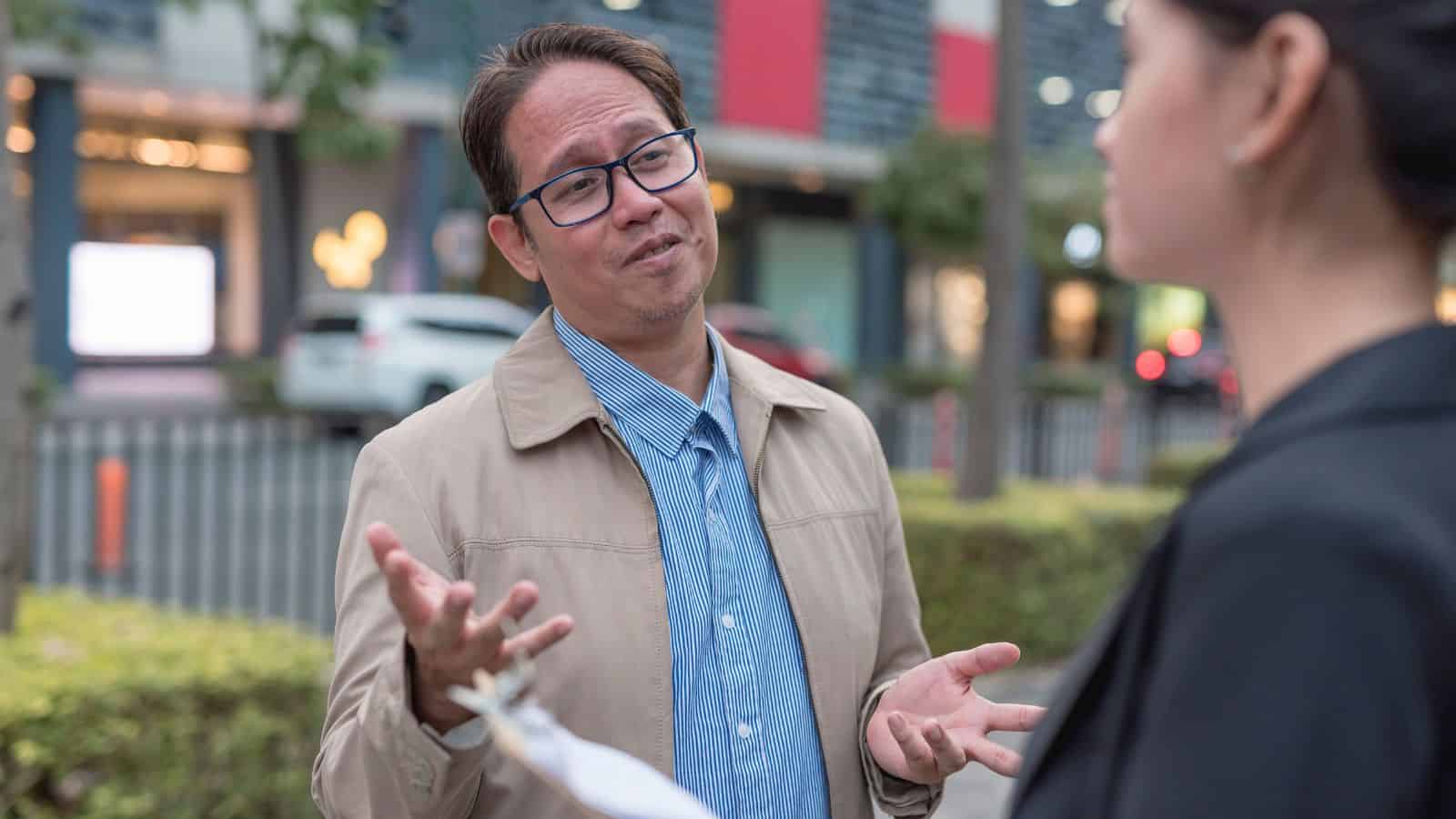Social skills can make or break conversations, relationships, and first impressions. For those who struggle in social situations, the things they say often reveal their discomfort or lack of awareness.
If you’ve ever been taken aback by someone’s bluntness, overly personal questions, or awkward statements, chances are you’ve encountered some of these common expressions.
“I’m just being honest”

This phrase often follows a rude or blunt comment that wasn’t necessary to say. People with poor social skills sometimes use “honesty” as an excuse to disregard tact or consideration for others’ feelings. While being honest is important, knowing when and how to deliver it is equally crucial.
Dropping a harsh truth without context or empathy often comes across as abrasive, making conversations uncomfortable for everyone involved.
“Why are you so sensitive?”

When someone reacts negatively to their words, socially unaware individuals may deflect responsibility by blaming the other person’s feelings. This dismissive comment shuts down meaningful communication and invalidates others’ emotions. They don’t consider their own delivery or timing, but rather, they turn the blame outward, which alienates people further.
“That’s stupid”

Calling someone’s idea, preference, or opinion “stupid” is a quick way to derail a conversation. Sure, they may not mean to be hurtful, but people with no social skills often use this phrase without thinking about how dismissive it sounds. This kind of language can make others feel belittled or attacked, even if it’s said casually or in jest.
“You’re doing that wrong”

Unsolicited advice or criticism is a hallmark of poor social awareness. Instead of offering help kindly or waiting to be asked, these individuals jump straight to pointing out flaws. This sort of negative comment can make others feel self-conscious or defensive, especially when the critique wasn’t invited.
“I’m bored”

Bluntly announcing boredom in a social setting signals a lack of consideration for others. This phrase often makes people feel uninteresting or devalued, even if that wasn’t the intention.
Those with poor social skills might disengage completely, leaving an awkward atmosphere behind.
“I don’t care”

Saying “I don’t care” shuts down conversations and sends the message that the speaker isn’t interested in connecting with anyone. Even if it’s meant to convey indifference about a decision, it can come across as dismissive or rude.
Individuals who are socially skilled know how to express neutrality without making others feel insignificant.
“That’s not my problem”

This phrase immediately distances the speaker from any shared responsibility or empathy. While it might be true that something isn’t their problem, the bluntness of the statement makes it seem cold or unhelpful. Instead of fostering collaboration, it creates an “every person for themselves” vibe that’s hard to navigate.
“Actually, you’re wrong”

Correcting someone in this way comes across as argumentative and condescending. Even if the intention is to clarify, the phrasing can make others feel embarrassed or defensive. People with strong social skills find softer ways to address inaccuracies, focusing on collaboration rather than confrontation.
“Nobody asked you”

This phrase is a sure conversation killer, instantly making someone feel dismissed and unwelcome. It’s a harsh way to shut down input, even if the comment wasn’t relevant or timely. Socially skilled people know how to redirect conversations without making others feel excluded or belittled.
“You look tired”

While this might seem like an innocent observation, it rarely lands well. Most people interpret it as a critique of their appearance rather than a caring comment. Those with poor social skills might not realize how this statement can make someone feel self-conscious or uncomfortable.
“At least I’m not as bad as you”

Comparing oneself to others in a negative way creates unnecessary tension. This comment often comes off as defensive or combative, making it hard to have a constructive conversation with that person. Socially aware individuals avoid one-upping others, especially when it’s meant to deflect criticism.
“Can I have some?”

Asking for something without context or timing often feels presumptuous or rude. Whether it’s food, money, or help, socially unaware individuals might blurt this out without considering how it might inconvenience or pressure others. A little tact can go a long way in these situations.
“Why don’t you just…?”

This phrase often oversimplifies someone else’s problem, dismissing its complexity. People with poor social skills might think they’re offering a helpful solution, but it usually comes across as condescending. It’s important to listen and understand the problem before jumping in with unsolicited advice.
“You’re so lucky”

Although this might seem like a compliment, it often invalidates someone’s hard work or effort. People with no social skills might not realize how dismissive it can sound to reduce someone’s hard-won success to mere luck. A much better approach would be to acknowledge and praise the achievement itself.
“I’m not good at this kind of thing”

Admitting discomfort in social situations is understandable, but this phrase can make others feel awkward or unsure of how to proceed. It puts the burden on others to carry the conversation or make the interaction smoother. People who have great social skills try to engage, even when they feel out of their element.
“Calm down”

Telling someone to “calm down” often has the opposite effect, escalating frustration instead of defusing it. This phrase can come across as dismissive, suggesting that the person’s emotions are invalid or overblown. It lacks empathy and fails to address the root of their feelings.
A more effective approach would be to ask how you can help – or simply listen without judgment.
“It’s not that big of a deal”

Minimizing someone else’s concerns with this phrase can make them feel unheard and dismissed. While it might be intended to comfort, it often comes across as invalidating their feelings or experiences. People want their emotions acknowledged, not brushed aside, and hearing this can make them feel like their perspective doesn’t matter. A better response is to show empathy and offer support.
